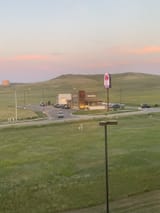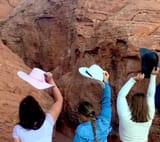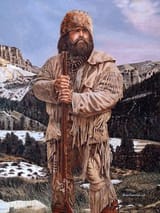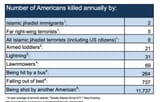>>211907999
Great follow-up. Compared to mountain men or frontiersmen, cowboys again get cultural credit for survival and toughness that they didn't necessarily earn to the same degree. Let's break it down:
---
Mountain Men & Frontiersmen: The OG Survivors
Who were they?
Mountain men: Fur trappers, explorers, and scouts (e.g., Jedediah Smith, Hugh Glass) active in the early 1800s, especially in the Rocky Mountains.
Frontiersmen: Broader category—pioneers, homesteaders, Indian fighters, and wilderness explorers during westward expansion (e.g., Daniel Boone, Davy Crockett).
What did they do?
Lived in isolation for months or years.
Navigated and mapped uncharted wilderness.
Survived off the land—hunting, foraging, making shelters, etc.
Regularly dealt with wild animals, extreme weather, and hostile encounters with Native tribes (sometimes due to their own encroachment).
Skillset:
Wilderness survival
Marksmanship
Tracking
Trapping and skinning
Self-reliance on a near-mythic scale
---
Cowboys:
Worked primarily on established ranches or cattle trails, mostly after the frontier was already opened up.
Had dangerous, hard jobs, but not nearly the same level of total wilderness isolation.
Relied more on infrastructure like ranches, chuck wagons, and trail bosses.
Rarely went totally off-grid or deep into unknown territory.
---
Cultural Fusion and Myth:
Here’s where we again see unearned mythological borrowing:
Cowboy characters in fiction often inherit the survival prowess of frontiersmen and mountain men.
They're shown as knowing how to track, hunt, and live off the land—even though most real cowboys were not trained survivalists.
This image gets cemented in media through composite characters who are part trapper, part scout, part outlaw, and part cattleman.
 6/19/2025, 6:58:24 PM
No.211901365
[Report]
>>211901386
>>211901429
>>211901485
>>211901491
>>211901497
>>211901542
>>211901545
>>211901743
>>211902085
>>211902146
>>211902597
>>211903580
>>211903880
>>211903917
>>211904142
>>211907999
>>211910883
>>211910984
>>211912749
>>211914690
>>211914940
>>211915656
>>211916131
>>211917653
>>211919720
6/19/2025, 6:58:24 PM
No.211901365
[Report]
>>211901386
>>211901429
>>211901485
>>211901491
>>211901497
>>211901542
>>211901545
>>211901743
>>211902085
>>211902146
>>211902597
>>211903580
>>211903880
>>211903917
>>211904142
>>211907999
>>211910883
>>211910984
>>211912749
>>211914690
>>211914940
>>211915656
>>211916131
>>211917653
>>211919720


















